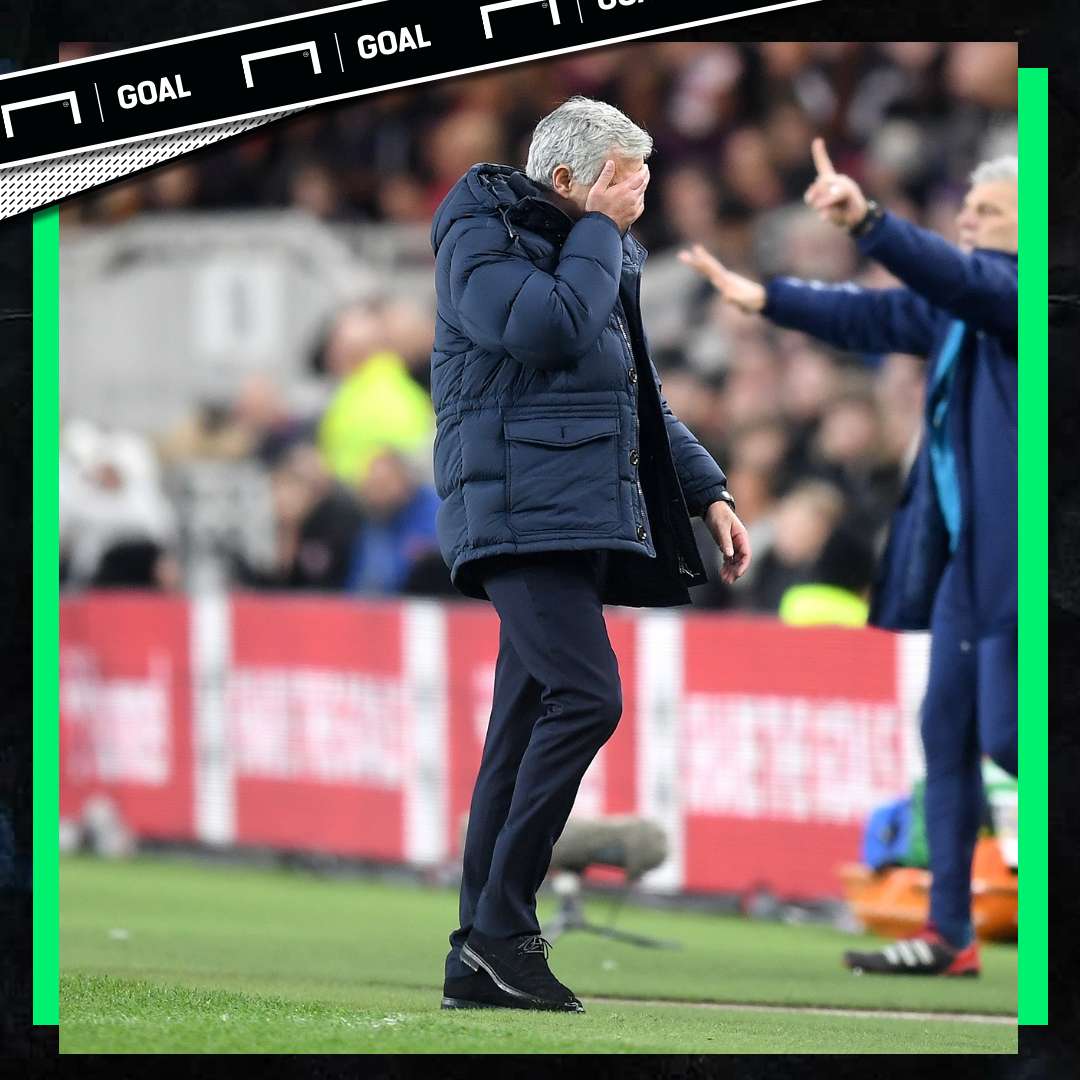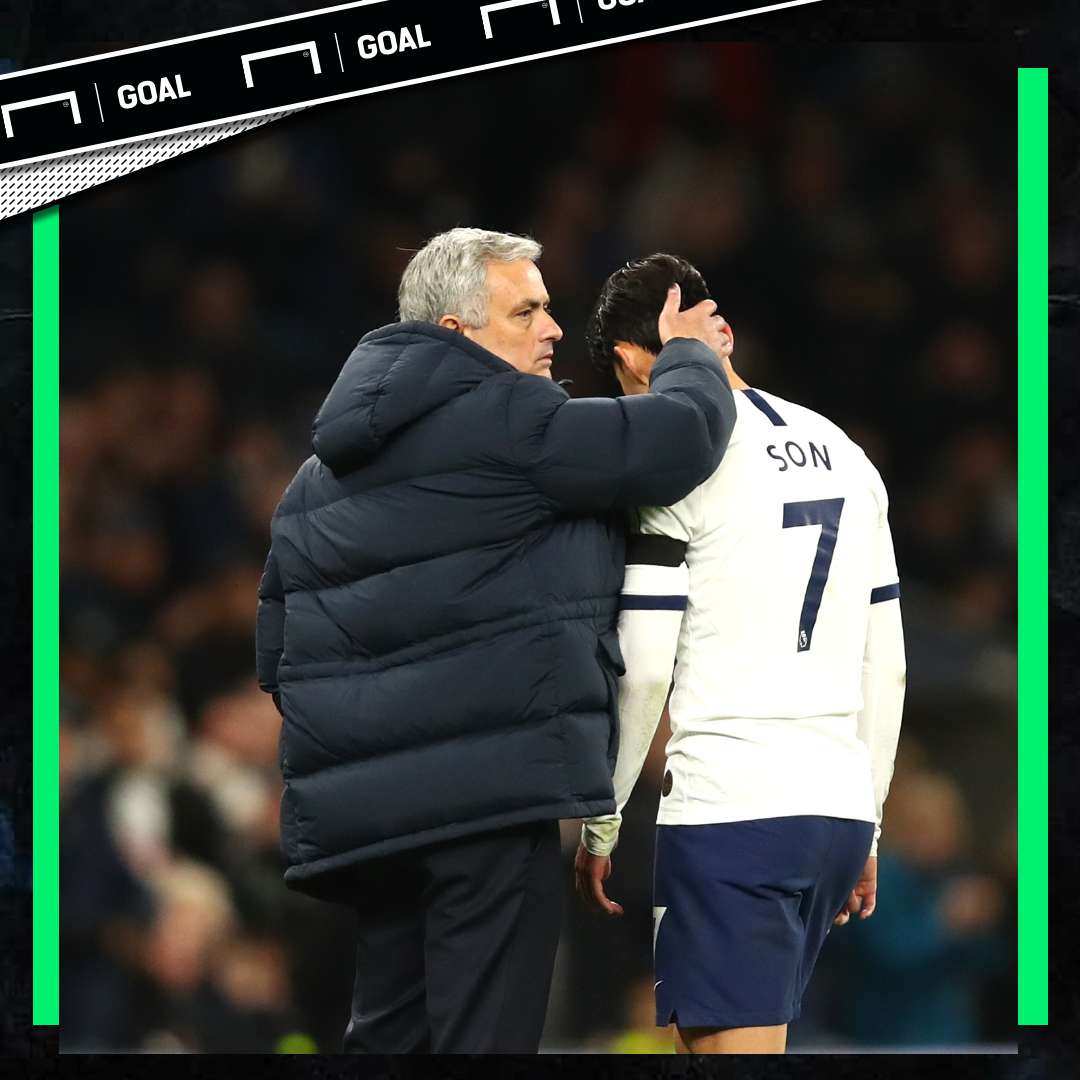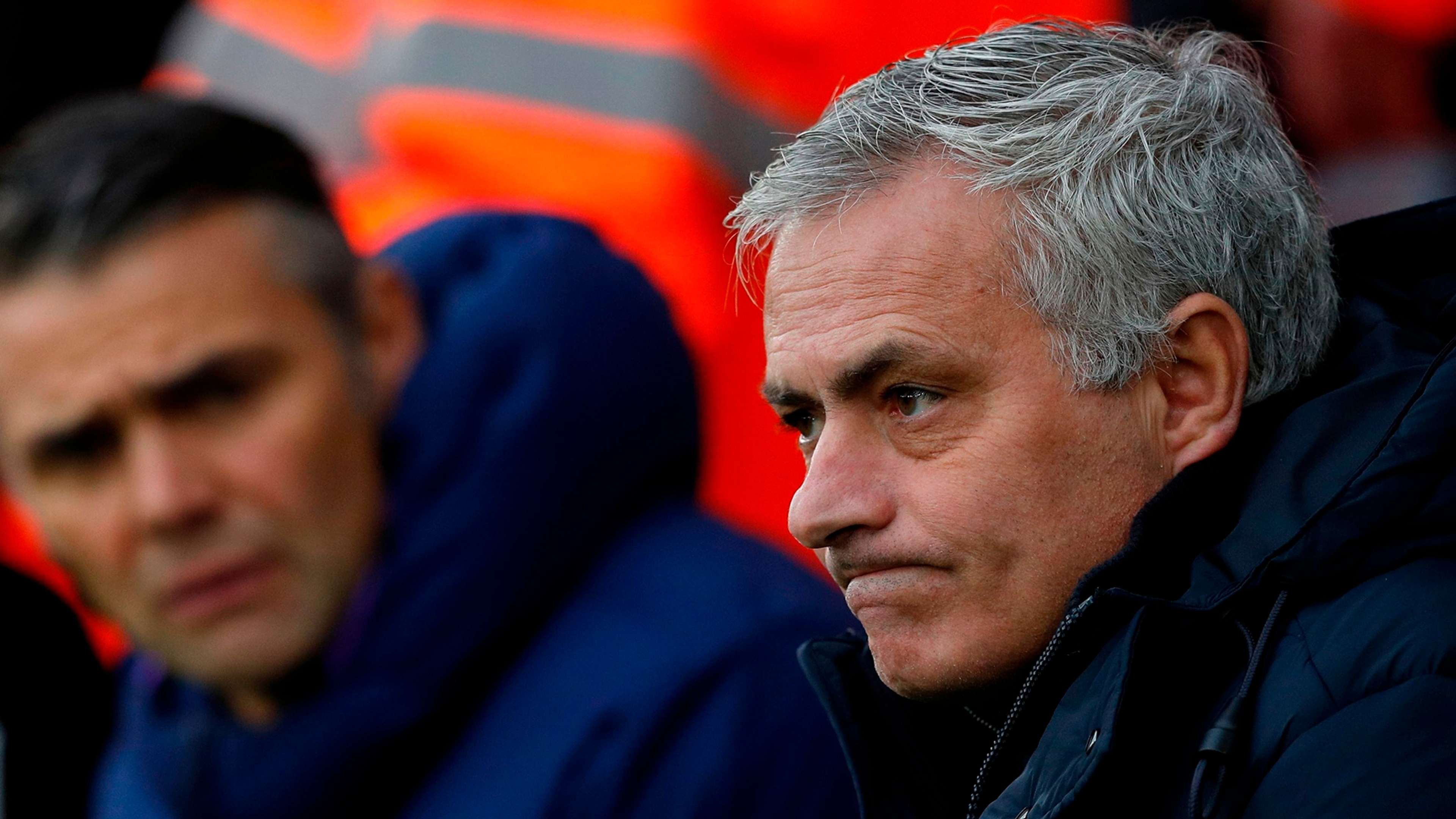Although there was a mixed response to the news of Jose Mourinho’s appointment in November, virtually every supporter and commentator agreed on one thing: reviving Tottenham Hotspur after 12 months of stagnation would take time, money, and patience.
Yet just six weeks on, murmurs of discontent have already begun.
There are warning signs of the mask slipping and the old Mourinho returning, with the Portuguese ostracising Harry Winks, firing a pot shot at Tanguy Ndombele and being rude to "an idiot". Anxious Spurs fans could be forgiven for feeling as though they’ve jumped straight to Mourinho's usual third-season end game.
However, the real warning sign isn’t Mourinho’s actions themselves, but rather the industry’s reaction to them.
Mourinho’s idols are Sir Alex Ferguson and Sir Bobby Robson, two greats of the game defined by their Churchillian stature rather than their tactical prowess. Their powers were charisma, man-management, and a galvanising quality; in other words, an aura of genius that united teams and drove them to spectacular overachievement.
The problem for Mourinho is that, like all psychological characteristics, these are by their nature illusory. One needs to believe in their presence for them to exist – and for Mourinho that magnetism is waning.
But Mourinho is also a master tactician, of course, and his own allure is built on an acceptance of his anti-aestheticism and the Machiavellian instincts underpinning his personality. He deliberately and strategically runs counter to modern trends, intertwining the mental and the tactical.
When his tactics stop working, his psychological powers wilt. When the aura loses its gloss, the tactics fall apart.
This is why, within just a few weeks of his tenure at Spurs, we are already obsessing over the details of his game plans and of his press conferences. It’s been a rocky start.
 Getty/Goal
Getty/Goal
Tottenham’s 1-1 draw with Middlesbrough in the FA Cup last weekend left Mourinho with a record of six wins, two draws, and four defeats from his first 12 games as manager, statistically his second-worst start to a new job behind a patchy beginning at Uniao Leiria in 2001-2002. Even Mourinho’s brief and unhappy 11-game spell at Benfica ended with a higher win percentage than his current 50 per cent success rate at Spurs.
The tactical issues are numerous, the most glaring of which being an inability to sort out Tottenham’s defence, which has conceded 19 goals in 12 games. This is partly because the side lacks quality in the full-back positions, plus Toby Alderweireld and Jan Vertonghen no longer seem capable of communicating effectively with one another.
But the defensive failures are systemic, a knock-on effect of the team’s awkward transition from high-pressing football under Pochettino to a more conservative style under Mourinho.
There is something oddly meandering about their defensive shape; as if the players are caught in limbo, caught between opposing systems, neither compressing space in their own half nor pinning the opposition back in theirs. Consequently, there are huge patches of grass on the flanks and in behind, leaving opponents free to counterattack through a passive midfield.
In possession, Tottenham are similarly ambling, the disconnect between the lines steadily worsening as Mourinho fails to get a hold on central midfield. His chopping and changing betrays anxiety – and an imbalance he will no doubt look to correct in the transfer market.
Dele Alli’s form has dropped off while Christian Eriksen continues to disappoint, leaving Spurs without any real line-breaking attackers. Without creative full-backs, with hesitant central midfielders, and with Heung-min Son only starting half of Mourinho’s games so far, Spurs lack tempo or imagination.
All of which has conspired to create the perception that Mourinho’s tactics are inherently out-dated. There is weight to this argument.
The wealth gap in modern football has created distinctly territorial battles of attack versus defence – of possession versus counter – for clubs of Tottenham’s stature, and Mourinho’s risk-averse football has perhaps become irrelevant as a result.
His famous dictum, that whoever has the ball has fear, is not applicable when deep-lying opponents force you to dominate possession and patiently probe for an opening.
The best managers in world football coach detailed attacking lines, etching moves into muscle memory to stretch and split a defensive shell. Mourinho, giving genuine freedom for his forwards to improvise on the counter, is being left behind – or so the theory goes.
The reality is more complex. For starters, he has had very little time on the training ground to impart his ideas and for a manager who regularly needs a full 12 months (two summers of coaching, four transfer windows) to get the team in shape, we should not be so quick to blame him for failing to inspire a new manager bounce. That Spurs’ drifting performances look so similar to the final months under Pochettino tells us this isn’t really Jose’s team yet.
 Getty/Goal
Getty/Goal
And what Mourinho has achieved tactically has, in short bursts, run counter to what we expect from him. Tottenham didn’t park the bus against Chelsea, even if Frank Lampard’s side managed to pin them back for long periods.
They held 53% possession against Manchester United at Old Trafford. More significantly, during a run of wins in November, Spurs lined up in a unique 3-2-5 formation in possession, shape-shifting to create an attacking system that was a far cry from the rigid discipline usually preached by Mourinho.
This could be the influence of his new assistant manager, 30-year-old Joao Sacramento, who is seen as a sharp tactical mind helping to modernise the Tottenham head coach.
Whatever the reason, Spurs have been more progressive than anticipated, offering an alternative explanation for why their defensive record hasn’t sharply improved. What has been interpreted as a negative could, in fact, be a sign that Mourinho is changing.
Besides, sorting out the Spurs defence will take the sort of long training sessions that haven’t been available until now. It will also take new signings in key areas. This is still the same ageing, jaded squad that Pochettino couldn’t inspire throughout most of 2019.
In short, Mourinho needs time, money, and patience before we can fairly judge his results. At the very least, he needs to be given an opportunity to sculpt the team in his image.
And yet perhaps the tactical intricacies, the pros and cons so far, scarcely matter. Whether pessimistic interpretations of Mourinho’s opening six weeks are accurate or not, it misses the point.
For his spells to captivate the Tottenham players, they first have to believe in the magic. If the mask has slipped, if every minor detail is viewed through a sceptical lens. If we choose to see each incident as an affirmation of Mourinho’s worst traits, then the players will never follow him and Mourinho is finished.
The early indicators – those first sighs and groans on social media, those first anxious voices leaking from the dressing room to journalists – suggest we should fear the worst.




